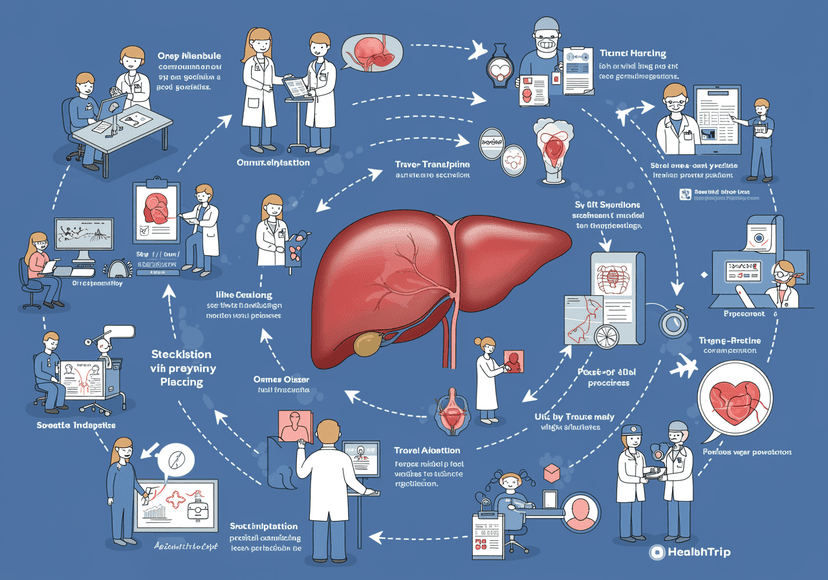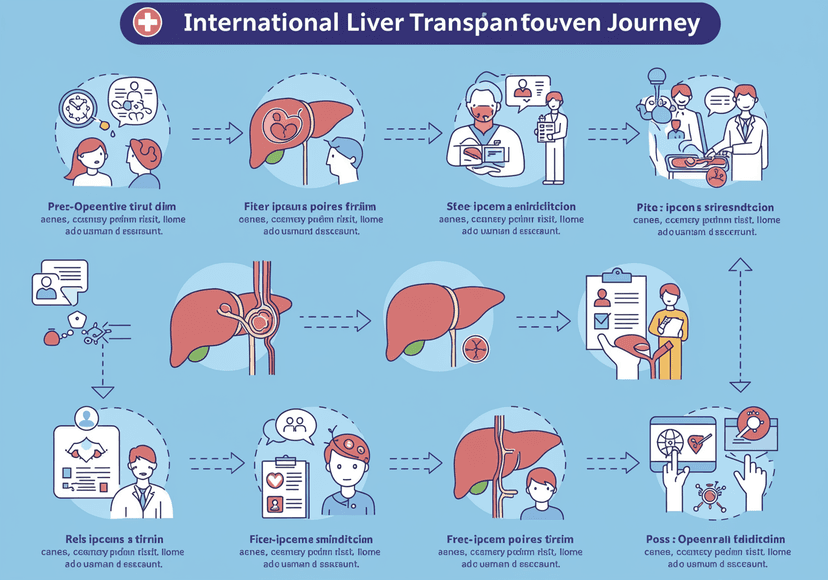
Understanding Transplant Medication
08 Oct, 2024
 Healthtrip
HealthtripOrgan transplantation has revolutionized the field of medicine, offering a second chance at life for individuals suffering from end-stage organ failure. However, this life-saving procedure comes with its own set of challenges, one of the most significant being the need for lifelong medication to prevent rejection of the transplanted organ. Transplant medication, also known as immunosuppressive therapy, plays a crucial role in ensuring the success of the transplant by suppressing the immune system's natural response to the new organ. In this blog, we will delve into the world of transplant medication, exploring its importance, types, side effects, and management strategies.
The Importance of Transplant Medication
When an individual receives a transplanted organ, their immune system recognizes it as foreign and attempts to reject it. This rejection can lead to serious complications, including organ failure and even death. Transplant medication helps to prevent this rejection by suppressing the immune system's response, allowing the transplanted organ to function properly. The medication works by reducing the production of antibodies that attack the new organ, thereby reducing the risk of rejection.
Most popular procedures in India
Types of Transplant Medication
There are several types of transplant medication, each with its own mechanism of action and side effect profile. The most commonly used medications include:
Corticosteroids: These medications, such as prednisone, work by suppressing the immune system's response and reducing inflammation.
Wellness Treatments
Give yourself the time to relax
Lowest Prices Guaranteed!

Lowest Prices Guaranteed!
Calcineurin inhibitors: Medications like cyclosporine and tacrolimus inhibit the production of antibodies that attack the transplanted organ.
mTOR inhibitors: Everolimus and sirolimus work by blocking the activation of immune cells that attack the transplanted organ.
Antimetabolites: Medications like azathioprine and mycophenolate mofetil reduce the production of immune cells that attack the transplanted organ.
Biologic agents: These medications, such as basiliximab and daclizumab, target specific immune cells that play a role in rejection.
Side Effects of Transplant Medication
While transplant medication is essential for the success of the transplant, it can also have significant side effects. These side effects can range from mild to severe and may include:
Infections: Transplant medication can increase the risk of infections, particularly in the first few months after transplantation.
Kidney damage: Long-term use of certain medications can damage the kidneys.
High blood pressure: Some medications can cause high blood pressure, which can increase the risk of cardiovascular disease.
Diabetes: Steroids and certain other medications can increase the risk of developing diabetes.
Weight gain: Steroids can cause weight gain, which can lead to obesity and other health problems.
Emotional changes: Transplant medication can cause mood swings, anxiety, and depression.
Managing Transplant Medication
Managing transplant medication is a delicate balancing act, requiring careful monitoring and adjustment of medication regimens. To minimize side effects and ensure the success of the transplant, it is essential to:
Take medication as prescribed: It is crucial to take medication exactly as prescribed by the healthcare provider, without missing or skipping doses.
Monitor blood levels: Regular blood tests are necessary to monitor the levels of medication in the blood, ensuring they are within a therapeutic range.
Report side effects: It is essential to report any side effects to the healthcare provider, who can adjust the medication regimen accordingly.
Attend follow-up appointments: Regular follow-up appointments with the healthcare provider are crucial for monitoring the transplanted organ and adjusting medication as needed.
Lifestyle modifications: Maintaining a healthy lifestyle, including a balanced diet, regular exercise, and stress management, can help minimize side effects and ensure the success of the transplant.
Organ transplantation is a complex and challenging process, requiring lifelong medication to prevent rejection of the transplanted organ. While transplant medication can have significant side effects, careful management and monitoring can minimize these risks and ensure the success of the transplant. By understanding the importance of transplant medication, its types, side effects, and management strategies, individuals can take an active role in their care, ensuring a better quality of life after transplantation.
Related Blogs

Your International Liver Transplant Journey with Healthtrip: Consultation to Recovery
Embark on your international liver transplant journey with Healthtrip. We

Your International Liver Transplant Journey with Healthtrip: Consultation to Recovery
Embark on your international liver transplant journey with Healthtrip. We

Understanding Transplant Complications
Identifying and managing potential complications after transplant.

Living a Healthy Life After Transplant
Tips and strategies for maintaining a healthy lifestyle after transplant.

Managing Rejection After Transplant
Understanding and managing rejection in transplant recipients.

Living with a Transplanted Organ
Managing medications, follow-up care, and lifestyle changes after an organ










